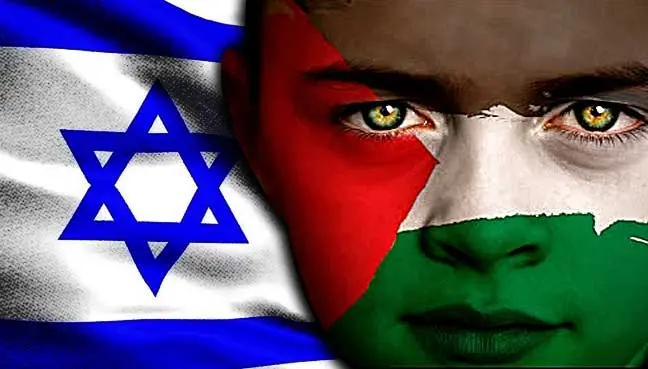The idea of a two state solution will no doubt be high on the agenda of the new US administration, following Saudi demands for a Palestinian state as a condition for an upgrade in Saudi relations with Israel.
Here are ten dilemmas posed by a Palestinian State which are too often swept under the rug, followed by 10 questions which Middle East policy makers too often forget to ask.
- Encirclement: Would a proposed state of Palestine not swallow up Jordan, most of whose population is Palestinian, leaving Israel with a hostile state from the Iraqi border to the Mediterranean Sea, with a corridor across the Negev between Gaza to Hebron?
- Israeli Arabs: Would the Arabs of the Galilee and the Negev not sue to join the Palestinian Arab state and then demand the fulfillment of U.N. Resolution 181 – an Israeli withdrawal to the 1947 borders (evacuation of Nahariya, Acre, Nazareth, Jaffa, Ashdod, Ashkelon, Kiryat Gat and Beer Sheva)?
- .Terror: Would a new Palestinian Arab entity disband terrorist organizations? We asked this question before the Oslo process imported the PLO in 1993, which has never renounced terrorism or violence as a ans to liberate all of Palestine.
- Armament: Why would there be any expectation that a sovereign Palestine be demilitarized, since all nation states maintain an armed force as an integral aspect of their new nation?
- Refugees: How would Israel deal with expectations of the Arab countries and UNRWA residents who continue to demand that Israel must absorb descendants of Arab refugees and thereby displace thousands of Israelis from places like Haifa, Tfzat and Jaffa and 80 kibbutzim which rest on the property of Arab villages where Arabs left in 1948?
- Air space: Would the Israeli Air Force be forbidden from flying over a new Palestinian Arabstate?
- Alliances: What would prevent a Palestinian state from concluding military agreements with countries still at war with Israel?
- Water: Would a sovereign Palestine not carry out pirate drilling, and threaten the mountain aquifer of Judea and Samaria?
- Jewish sovereignty: Would the momentum for a Palestinian Arab state not erase the momentum of the right of the Jews to the Land of Israel in international consciousness?
- Loss of independence: Would Israel not become a subject to the sponsors of a Palestinian Arab state – today, known as the Quartet – the U.S., the EU, the U.N. and Russia?
All this leads to questions which Middle East policy makers should therefore ask about a Palestinian state
- Will you ask the Palestinians to recognize the Jewish state of Israel?
- Will you demand that the Palestinians finally ratify the “Declaration of Principles for Peace” signed at the White House in 1993?
- Will you demand that the Palestinians cancel the PLO charter from 1964 that calls for the extermination of the Jewish State?
- Will you demand that the Palestinians cancel their unprecedented law from 2015 which assures a salary for life for anyone who murders a Jew?
- Will you demand cancellation of the new PA and UNRWA school curriculum, based on Jihad, martyrdom and “right of return by force of arms”?
- Will you demand the removal of weapons from PA and UNRWA schools?
- Will you insist that UNRWA dismiss employees affiliated with Hamas, Islamic Jihad or Fatah terror organizations?
- Will you introduce UNHCR standards to advance resettlement of fourth- and fifth-generation refugees from the 1948 war who have spent seven decades relegated to refugee status? Current UNRWA policy is that any Arab refugee resettlement would interfere with a purported “right of return” to pre-1948 Arab localities.
- Will you demand an audit of donor funds that emanate from 68 nations for the PA and UNRWA, with little transparency?
- Given the active participation of the Palestine Security Force (PSF) in the current war, will you demand that the US cease its support of the PSF?









